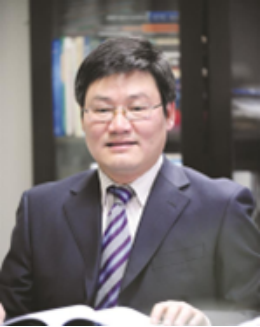
| Hong JiangE-mail: hong-jiang@whu.edu.cn
Website: https://www.rmhospital.com/d/edu/3.html
|
Biography
Prof. Hong Jiang, M.D., is first class chief physician, second class professor and doctoral supervisor. He is the president of Cardiovascular Hospital of Renmin Hospital of Wuhan University, director of department of internal medicine and cardiology, as well as resident and specialized training base in Renmin Hospital of Wuhan University. Prof. Jiang is the expert entitled to Government Special Allowance, and titled with the First Medical Leader of Hubei Province, Sackler Outstanding Physician, National Advanced Worker in Health System, and National "Bethune Good Doctor".
Prof. Jiang experts in interventional therapies for arrhythmias, conronary artery diseases, valvular heart diseases, cardiomyopathy and congenital heart diseases, and is famous in China for his excellent skills in interventional cardiology. Prof. Jiang also focuses on basic, clinical and translational research on cardiovascular diseases. He has presided more than 20 scientific research projects including 1 key program and 6 general programs of National Natural Science Foundation of China. He has published over 200 original articles in top journals including JACC, Circulation, Adv Mater, Adv Funt Mater, Adv Sci, JACC Cardiovasc Interv, Circ Heart Fail, Heart Rhythm, et al. Prof. Jiang has won more than 20 national and provincial Science and Technology Progress Awards, including 3 National Science and Technology Progress second prizes and 5 provincial Science and Technology Progress first prizes.
Research
1.Clinical diagnosis and interventional treatment of cardiovascular diseases.
2.Innovative translational research on autonomic neuromodulation for prevention of cardiovascular diseases.
Representative Publications
1.Han Y(*), Zeng H(*), Jiang H(*), Yang Y(*), Yuan Z(*), Cheng X, Jing Z, Liu B, Chen J, Nie S, Zhu J, Li F, Ma C. CSC Expert Consensus on Principles of Clinical Management of Patients With Severe Emergent Cardiovascular Diseases During the COVID-19 Epidemic. Circulation. 2020 May 19;141(20):e810-e816. (IF=37.8)
2.Zhang L(#), Guo F(#), Xu S, Deng Q, Xie M, Sun J, Kwok RTK, Lam JWY, Deng H(*), Jiang H(*), Yu L(*), Tang BZ(*). AIEgen-based Covalent Organic Frameworks for Preventing Malignant Ventricular Arrhythmias Via Local Hyperthermia Therapy. Adv Mater. 2023 Aug 2:e2304620.(IF=29.4)
3.Wang L(#), He W(#), Yu X, Hu D, Bao M, Liu H, Zhou J, Jiang H(*). Coronavirus disease 2019 in elderly patients: Characteristics and prognostic factors based on 4-week follow-up. J Infect. 2020 Jun;80(6):639-645.(IF=28.2)
4.Yu L(#),Zhou L (#),Cao G(#),Sunny Po,Huang B,Zhou X,Wang M, Yuan S, Wang Z, Wang S, Jiang H(*), Optogenetic Modulation of Cardiac Sympathetic Nerve Activity to Prevent Ventricular Arrhythmias. J Am Coll Cardiol. 2017 Dec 5;70(22):2778-2790. (IF=24.0)
5.Ye T(#), Lai Y(#), Wang Z(#), Zhang X, Meng G, Zhou L, Zhang Y, Zhou Z, Deng J, Wang M, Wang Y, Zhang Q, Zhou X, Yu L(*), Jiang H(*), Xiangheng Xiao(*). Precise Modulation of Gold Nanorods for Protecting against Malignant Ventricular Arrhythmias via Near‐Infrared Neuromodulation. Advanced Functional Materials. 2019 June 20. (IF=19.0)
6.Zhang Y(#), Zhou L(#), Liu C, Gao X, Zhou Z, Duan S, Deng Q, Song L, Jiang H(*), Yu L(*), Guo S(*), Zheng H(*). Self-powered pacemaker based on all-in-one flexible piezoelectric nanogenerator. Nano Energy, 2022, 99. (IF=17.6)
7.Zhou L(#) , Zhang Y (#) , Cao G, Zhang C, Zheng C, Meng G, Lai Y, Zhou Z, Liu Z, Liu Z,Guo F, Dong X, Liang Z, Wang Y, Guo S, Zhou X(*), Jiang H (*), YuL (*). Wireless Self-Powered Optogenetic System for Long-Term Cardiac Neuromodulation to Improve Post-MI Cardiac Remodeling and Malignant Arrhythmia. Adv Sci (Weinh). 2023 Mar;10(9): e2205551.(IF: 15.1)
8.Yu L(#), Huang B(#), Po SS, Tan T, Wang M, Zhou L, Meng G, Yuan S, Zhou X, Li X, Wang Z, Wang S, Jiang H(*). Low-Level Tragus Stimulation for the Treatment of Ischemia and Reperfusion Injury in Patients With ST-Segment Elevation Myocardial Infarction: A Proof-of-Concept Study. JACC Cardiovasc Interv. 2017 Aug 14;10(15):1511-1520. (IF=11.3)
9.Meng G(#), Zhou X(#), Wang M, Zhou L, Wang Z, Wang M, Deng J, Wang Y, Zhou Z,Zhang Y, Lai Y, Zhang Q, Yang X, Yu L (*), Jiang H (*).Gut microbe-derived metabolite trimethylamine N-oxide activates the cardiac autonomic nervous system and facilitates ischemia-induced ventricular arrhythmia via two different pathways. EBioMedicine. 2019 Jun;44:656-664. (IF=11.1)
10.Lai Y(#), Zhou X(#), Guo F(#), Jin X, Meng G, Zhou L, Chen H, Liu Z, Yu L(*), Jiang H(*). Non-invasive transcutaneous vagal nerve stimulation improves myocardial performance in doxorubicin-induced cardiotoxicity. Cardiovasc Res. 2022 Jun 22;118(7):1821-1834. (IF=10.8)
11.Lu Z, Cui B, He B, Hu X, Wu W, Wu L, Huang C, Po SS, Jiang H(*). Distinct restitution properties in vagally mediated atrial fibrillation and six-hour rapid pacing-induced atrial fibrillation. Cardiovasc Res. 2011 Mar 1;89(4):834-42. (IF=10.8)
12.Jiao L(#), Wang Y(#), Zhang S(#), Wang Y, Liu Z, Liu Z, Zhou Y, Zhou H, Xu X, Li Z, Liu Z, Yu Z, Nie L, Zhou L(*), Jiang H(*). Melatonin improves cardiac remodeling and brain-heart sympathetic hyperactivation aggravated by light disruption after myocardial infarction. J Pineal Res. 2022 Nov;73(4):e12829.(IF=10.3)